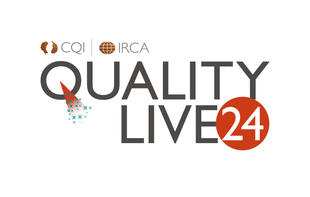
Quality not compulsory? It's your funeral...
Progress indicator

The UK’s funeral industry relies on its trade associations for quality assessment and codes of conduct, but change could be on the way.
The recent scandal at Legacy funeral directors in Hull, where police confiscated bodies and ashes,and made two arrests, was genuinely shocking. It also revealed something about the funeral sector of which most people are unaware – it’s not licensed or regulated.
In fact, research published by the Dignity group of undertakers, found that nine out of 10 people assume minimum quality standards are properly enforced in the funeral sector. In reality, there are no barriers to setting up as a funeral director – anyone can do it.
Instead, quality standards are policed by the sector’s trade organisations, the largest of which are The National Society of Allied and Independent Funeral Directors (SAIF) and the National Association of Funeral Directors (NAFD). There is also BSI standard BS EN 15017:2019 Funeral Services – Requirements that covers the provision of services. But since membership of a trade body is not compulsory, none of this quality framework is mandatory.
"We estimate that about 10 per cent of funeral businesses in the UK are operating without a trade body membership," says Terry Tennens, chief executive of SAIF. "Typically, the smaller independent or family businesses belong to SAIF, while the larger organisations, such as Dignity or Co-op, belong to NAFD. There are even some that belong to both."
SAIF’s code of practice has been written in consultation with other bodies and must be adhered to in order for firms to be members and use the SAIF quality logo – a badge that consumers can look out for. "We work alongside NAFD in an all-parliamentary group as well as talking to the devolved governments."
Tennens says that, for a funeral firm to join his organisation, it must first be quality assessed. New or inexperienced organisations are unlikely to be successful in their application; SAIF has a probationary membership for these practitioners "It’s a bit like an L plate," he says. "They’re not allowed to use our logo and they’ll have a mentor until they’ve built up some experience."
SAIF also audits existing full members, using a risk-based system, usually every three years. Although if 'situations"'emerge, this is sooner.
"We ourselves need an external body so that we can be audited and measured against, so we’ve become ISO 9001 certified."
"We deal with customer complaints through our professional standards committee, which is a certified alternative dispute-resolution body with the Chartered Trading Standards Institute," says Tennens. "However, if a complaint comes in, and it's alarming, we will do a quality inspection straight away – especially if it’s to do with the care of the deceased."
Depending on the seriousness of the infringement, SAIF may inspect again to confirm that the required improvements have been made.
"We also realised that we ourselves need an external body so that we can be audited and measured against, so we’ve become ISO 9001 certified," Tennens says. "The UK accreditation service audits us annually and we meet quarterly with our QMS team to monitor what’s going on."
Mandatory membership
This all sounds robust enough, but remember: membership of a trade body is not compulsory (indeed, Legacy wasn’t a member of SAIF or NAFD). But should it be?
SAIF says it’s asked the Ministry of Justice if it can recommend that all funeral businesses belong to a trade body, and discussions are ongoing. "Apparently there are laws that would make that difficult," says Tennens.
What about statutory government regulation instead? The Scottish government has already passed legislation, creating the first statutory code of practice for funeral directors, which will come into effect from March 2025. SAIFs own code aligns with this, to avoid the prospect of members in England having different rules from those in Scotland.
The Scottish code will give the authorities the power to close down a funeral home. There is currently one full-time inspector and more will likely be recruited.
Tennens is supportive of this quality approach, but warns that statutory regulation is "no panacea".
"When I gave evidence to the Fuller enquiry in 2022 [established to investigate how David Fuller was able to carry out unlawful actions in the mortuary of Maidstone and Tunbridge Wells NHS Trust for so long without discovery] my argument was that the Care Quality Commission was regulating these hospitals, and yet Fuller still got away with it for a long time.
"Regulation needs to be laser focused and proportionate if it’s going to work. We have put together a paper for the Ministry of Justice recommending a co-regulatory model: the trade bodies and the government regulator working together."
We’re not likely to see huge changes to the way the funeral sector is regulated until the police have had chance to complete their investigation of what happened at Legacy, but it certainly seems likely that change – in some form – is on the way.
Indeed, Prime Minister Rishi Sunak hinted as much in a recent press conference when he said: "We’re already in a dialogue with the industry to make sure that [dignity and respect] is provided to people when they need it. We’re reviewing the regulation of the industry and, in the meantime, working with trade bodies who are focused on codes of practice and self-regulation."
Want to read more like this?
Learn how to search for more great content like this, by watching our video on how to find Knowledge articles.
Quality World

Get the latest news, interviews and features on quality in our industry leading magazine.




